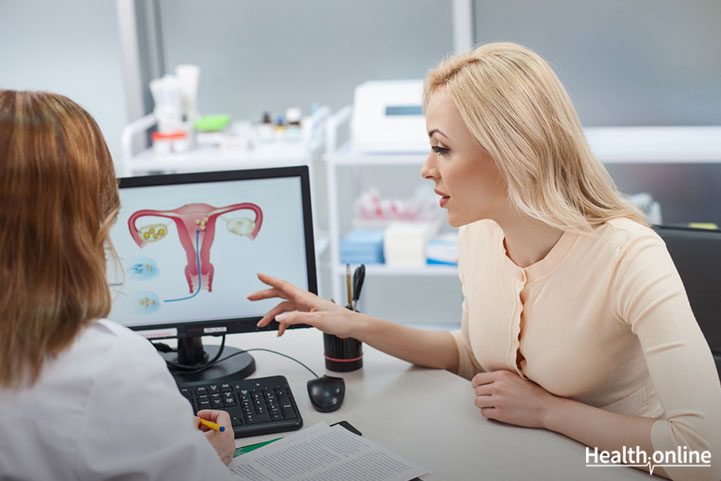
Things To Know While Getting Pregnant if You Have PCOS
According to the National Institute of Health, women with PCOS have a harder time getting pregnant and are at a higher risk for certain complications during pregnancy. Complications of pregnancy associated with PCOS include preeclampsia, an increase in blood pressure after the 20th week of pregnancy.
Experts agree that the exact cause of preeclampsia remains unknown. Numerous proposed theories have led to various attempts at prevention and intervention strategies. Persons with certain metabolic diseases like diabetes are more susceptible, and obesity is another major risk factor.
Recommended Read: Pregnancy Complications of Obese Women
Sometimes these complications cause babies to be born early. A baby is considered “preterm” if he or she is delivered before 37 weeks of pregnancy. Babies that arrive early must be watched carefully in the hospital until it is determined that they are strong enough to go home. Work with your healthcare provider to promote a healthy pregnancy and delivery.
Reduce Risk for Preeclampsia
Having blood pressure in a normal range is important whether you are pregnant with PCOS or not. Blood pressure is the force of blood that pushes against the walls of your arteries, which are the blood vessels. There needs to be enough pressure to move your blood through these vessels and this pressure can fluctuate with certain foods and increases during vigorous exercise. Carrying a baby is a type of exercise since you are carrying more weight than usual and there are new demands on the body. So these vessels that carry blood away from your heart to other parts of the body are having to work a little harder during pregnancy.
These fluctuations usually resolve on their own, but the chronic high pressure in your arteries (also called hypertension) can put extra stress on your heart and kidneys and that is when the condition must be addressed by your medical professional. Some women have high blood pressure before they get pregnant. Others have high blood pressure for the first time during pregnancy. About 8 in 100 women (8 percent) have some kind of high blood pressure during pregnancy.
Recommended Read: Preeclampsia: What It Is and How to Detect It?
Reducing High Blood Pressure
Some things you can do while pregnant with PCOS to reduce your risk of preeclampsia (high blood pressure in the 20th week of pregnancy) are about healthy lifestyle.
Exercise
Tops the list for reducing blood pressure. Just walking around the house is not what we’re talking about here. Get outdoors in some fresh air as often as possible. Regular physical activity can bring your blood pressure down to safer levels. You don’t have to develop any kind of complicated routine; just keep it simple. Walking briskly for 30 minutes a day during your pregnancy will help keep your body strong and help prepare you for the birth.
-
Cut down on salt
This is another major lifestyle change that could have enormous benefits for you and for the baby. According to the Mayo Clinic, even a small reduction in the sodium in your diet can reduce blood pressure by 2 to 8 mm Hg. This is especially important for pregnant women with greater salt sensitivity including African-Americans. Start reading the labels on foods you buy at the grocery store. You’ll be amazed at how much salt is added to foods in processing, so it is going to be better for you to limit those processed foods and look for low-sodium options on those foods.
-
Eat Healthy
Eating a diet that is rich in whole grains, fruits, vegetables can lower your blood pressure as well as provide the important nutrients you need for a healthy pregnancy. Experiment with natural flavorings while reducing salt intakes such as lemon or lime juice and herbs like basil or lemon balm. You can use these herbs fresh from the farmer’s market or grocery store, or dried versions. Your taste buds will begin to change when they aren’t so saturated with salt and pretty soon your food will taste even better. When that happens, you’ll never go back to using too much salt again, and you’ll wonder why you tolerated so much before. If it really becomes a challenge to reduce your intake of salt, try keeping a food journal to discover what helps you stay on target and what foods to avoid. Potassium can lower the effects of sodium on blood pressure. The best source of potassium is in food, such as fruits and vegetables, rather than supplements. Talk to your doctor about the potassium level that’s best for you.
-
Reduce Caffeine
There’s a lot of conflicting information about the role of caffeine and blood pressure. Having one cup of half-caf and milk in the morning isn’t going to change your blood pressure much, if at all. But people who drink a lot of soda and coffee throughout the day, plus use too much salt, often have hypertension and trouble sleeping, so it’s better to limit the amount while you are pregnant.
-
Limit Alcohol
Most health care professionals advise women to avoid alcohol during pregnancy, but some medical professionals say an occasional glass of red wine is okay. Alcohol can be both good and bad for your health. In small amounts, it can potentially lower your blood pressure. Drinking more than small amounts of alcohol during pregnancy is bad for both mother and baby.
Recommended Video: 5 Exercises for PCOS Patients
Keep yourself updated with the latest on Family Planning & Pregnancy . Like us on Facebook and follow us on Twitter for more on Health , Parenting and Diet & Nutrition . Also, check out our Health Tools and try out our health-related Quizzes .




